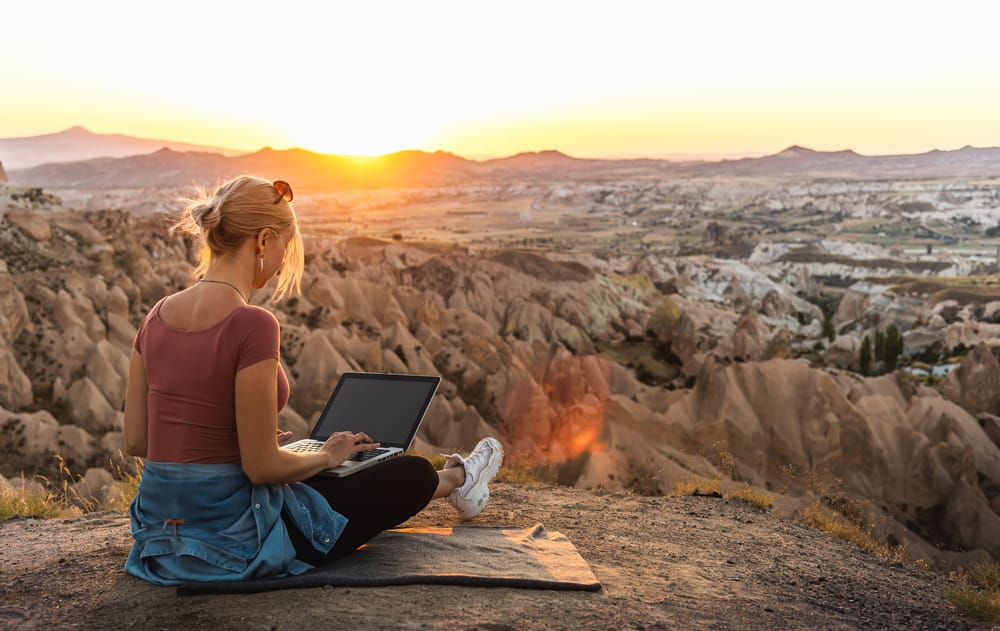SiteMinder recently launched its annual ‘Changing Traveller Report’, which shows that the desire to blend business and leisure (bleisure) travel is being adopted to varying degrees globally, however, is strongest amongst Thai travellers, followed by those from Indonesia and China.
Bradley Haines, market vice president of Asia Pacific at SiteMinder, said: “The long-awaited resurgence of travel has emerged with a new type of traveller, who is far more open to working flexibly, away from the office. In this year’s report, we analysed the differing needs of those working and not working on their next trip and found that for working travellers the extra hours on site are making the ‘little things’ feel bigger.
These travellers value smaller details like a property’s scent and artwork more than others, are spending more time looking for a property that meets their exact needs and are more influenced by targeted advertising and social media, all of which will have growing implications for accommodation providers as this group increases in size.”
A new survey of more than 8,000 travellers globally, including 800 travellers across Thailand, reveals the extent that Thai travellers are embracing working holidays, with almost 2-in-3 (65%) expecting to work from their next trip, compared to the global average of 36%. This growing preference is set to have a distinct knock-on effect for accommodation providers. For those working on their next trip, accommodation is now more than simply a place to lay their head.
As the largest accommodation-specific traveller survey globally, SiteMinder’s report uncovers five key travel trends set to inform and inspire the accommodation and tourism industry, one of which is the bleisure trend:
- The Macro-Travel Trend: The urge to travel is stronger than rising inflation,
- The Digital Influence Trend: Right now, travellers are the most winnable consumers on earth,
- The Bleisure Trend: Working travellers want the hotel of the future, today,
- The Trust Trend: Every digital touchpoint matters for the new trust-critical traveller,
- The Human Connection Trend: Tech-enabled travellers are not willing to compromise on human connection.
Another key insight from SiteMinder’s report was how tech-enabled Thai travellers are, compared other travellers from around the world: 78% of Thai travellers are “influenced” or “very influenced” by social media when making a booking, above the global average of 43%, and the highest globally. 72% prefer an automated check-in process, compared to the global average of 54%. 93% would pre-visit their property in the metaverse before check-in if they had the opportunity to, above the global average of 72% .14% see a chatbot as an important aspect of a property’s website, compared to the global average of 8%
What Is Bleisure Travel
- Bleisure travel, combining business and leisure, is on track to take over traditional business travel.
- The change creates a new type of traveler who is neither a business traveler or a carefree vacationer but a combination.
- The hospitality industry can adapt by offering new services and amenities that make it easy for travelers to move from work to fun.
Time in the boardroom paired with time at the beach. Part work, part vacation. That’s the idea behind bleisure travel, a pandemic-fueled trend with staying power.
As the name implies, bleisure is part business travel, part leisure travel. It’s combining a work trip with an extended vacation before, during or after the work event.
With more people working remotely because of the pandemic and a surge of people starting to travel again, bleisure has seen tremendous growth in recent months.
What Does it Mean for the Hospitality Industry?
After a challenging past few years, bleisure travel opens the door to new opportunities in hospitality and creates a new type of traveler, one who is there just for business or just for fun. With this new type of travel, hospitality companies have the chance to adjust and tailor their services. Here are four impacts and opportunities of bleisure travel:
Turn Business Travelers into Loyal Guests
Most bleisure travelers stay at the same place for the work and leisure parts of their trips. That means that hotels traditionally associated with business travelers have a new opportunity to showcase their relaxing sides, deliver great experiences and create loyal guests. These hotels can entice business guests with tour packages and pre-planned itineraries, as well as amenities and services tailored to the family and partners who come along.
Blending Workspaces with Relaxation
Many bleisure travelers are still working remotely and need a place to check in. A growing number of hotels are adding flexible workspaces and meeting rooms. But travelers also need a place to unwind and unplug so they don’t feel the need to stay connected during their leisure travel. Hospitality companies can tap into the need for relaxation by making it easy for travelers to compartmentalize and step away from their responsibilities.
Showcase the Location
It’s not just about traveling for a meeting anymore. It’s about experiencing the destination. In many cases, bleisure travelers are willing to spend more on dining, entertainment and tours because their company paid for their flights. But bleisure travelers may not have time to research everything beforehand. For these travelers, ease is crucial. Hospitality companies can partner to create immersive experiences like full-day tours and well-rounded excursions.
Update the Travel Schedule
Business travelers are known to only stay in a location during the week. But bleisure travelers stay longer and through the weekend, which shakes up weekly booking patterns. There’s no longer a distinct line between business travelers during the week and leisure travelers on the weekend. The best hospitality companies serve all types of customers throughout the week and are prepared to provide tailored service and recommendations, no matter the day.
After a tumultuous few years, the hospitality industry is ripe for disruption. And bleisure travel might just be the reason things change for the better.

